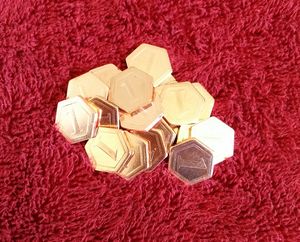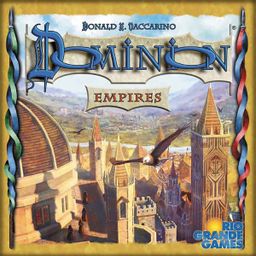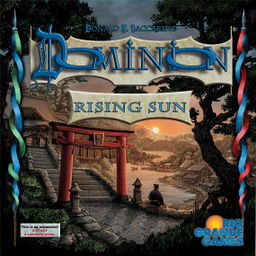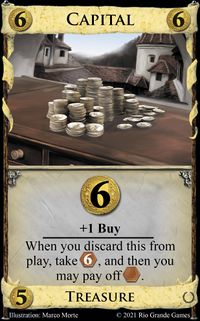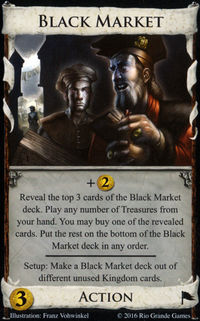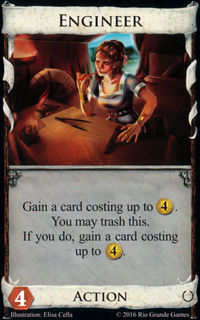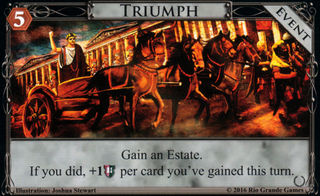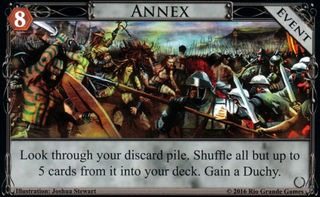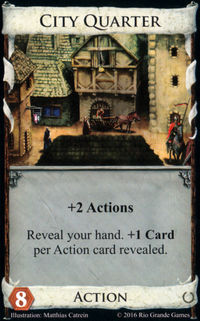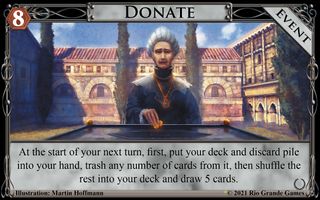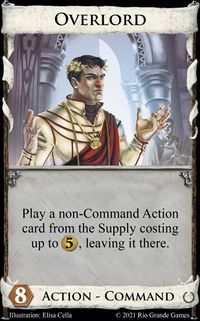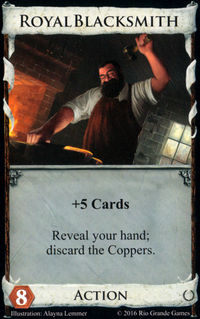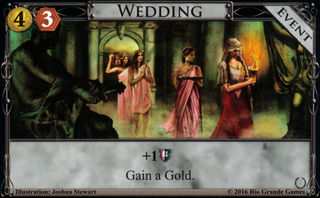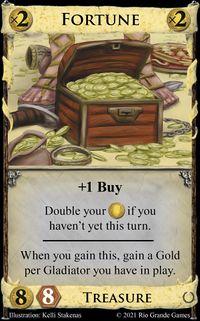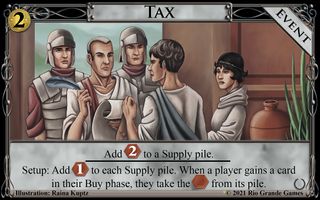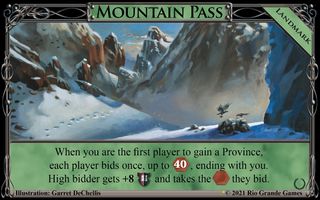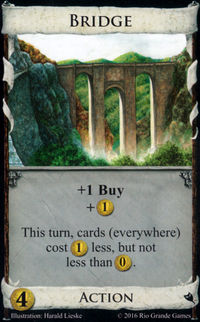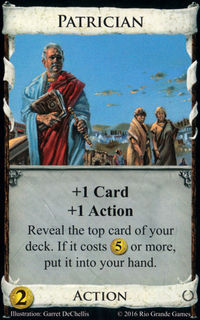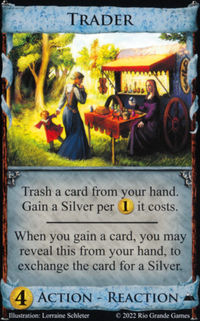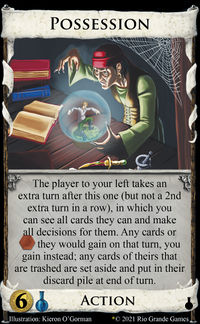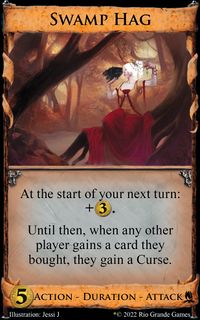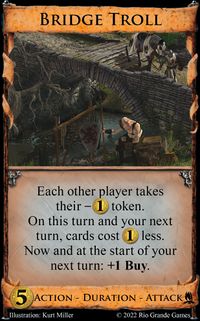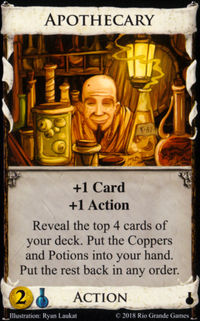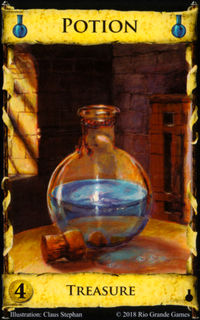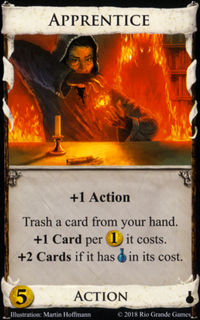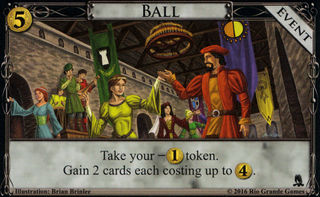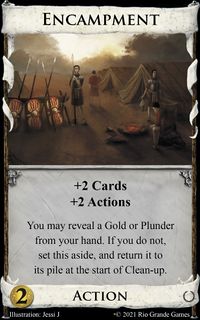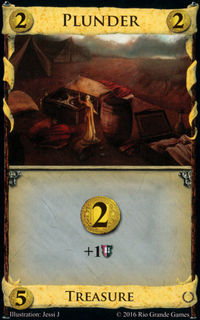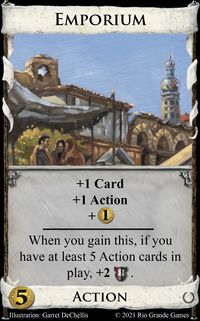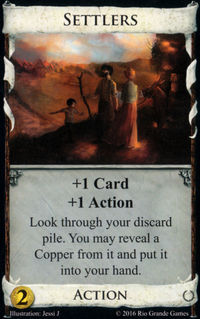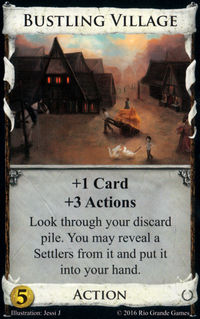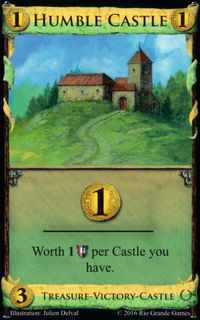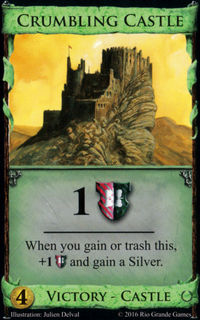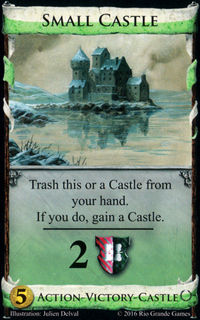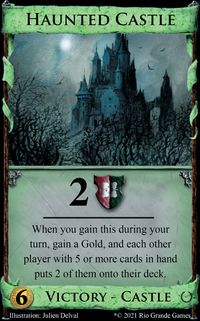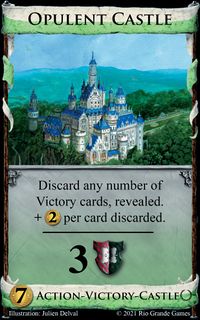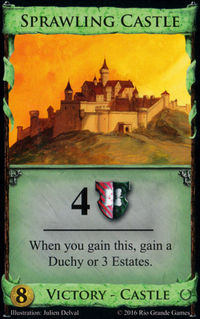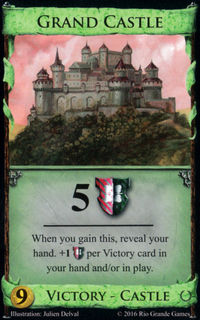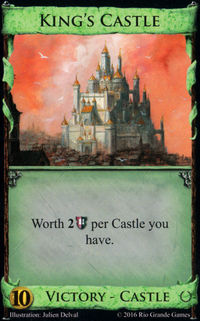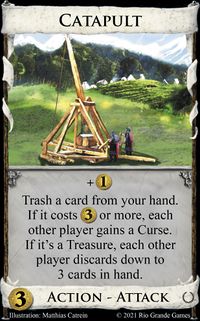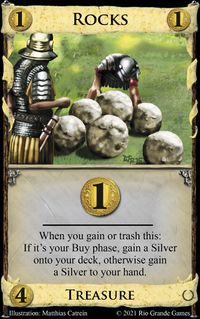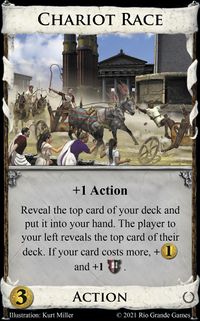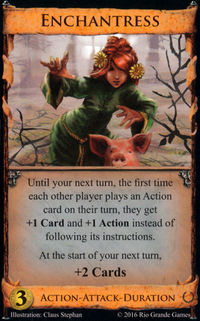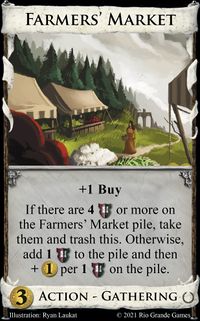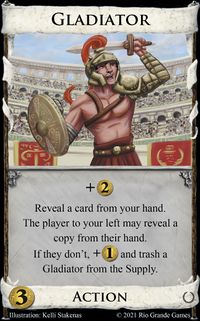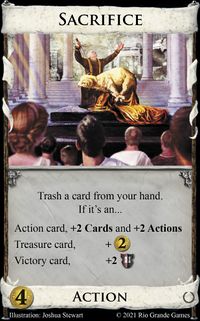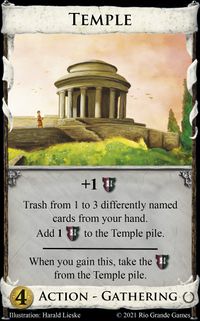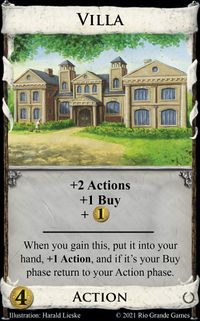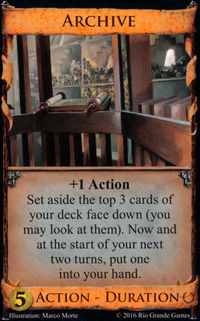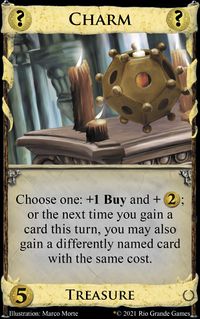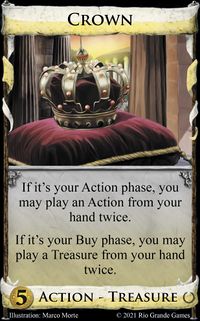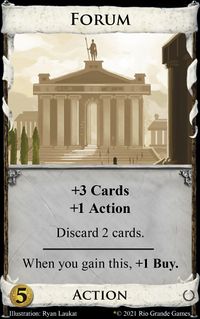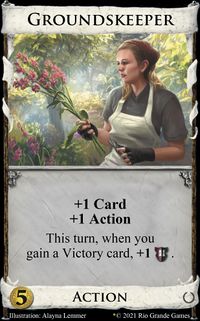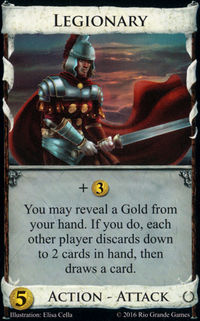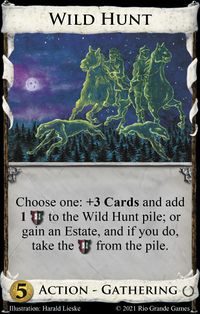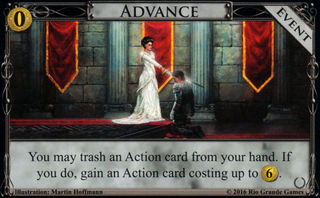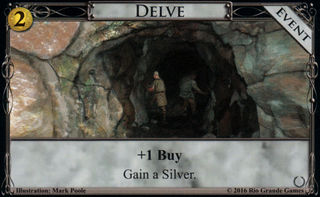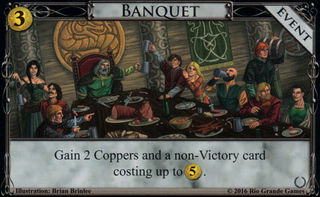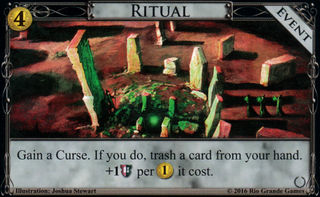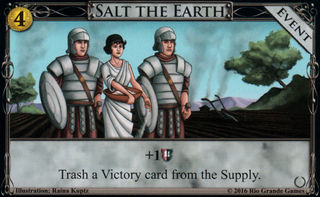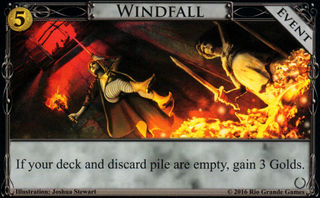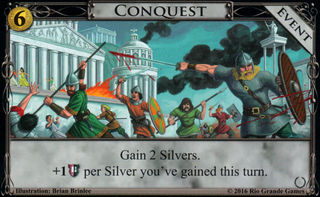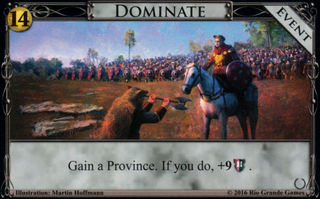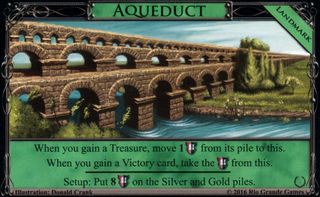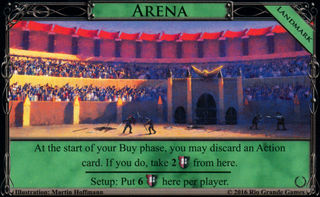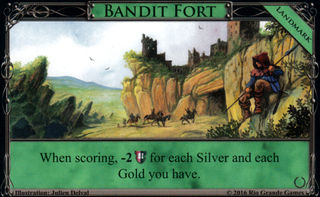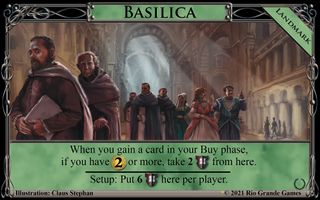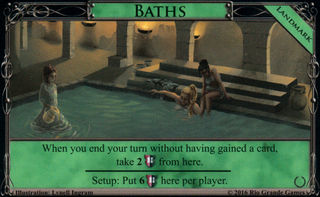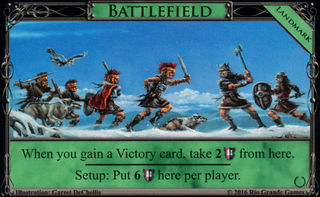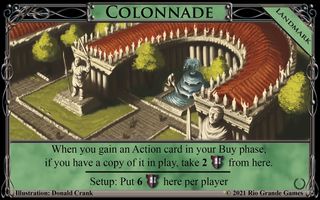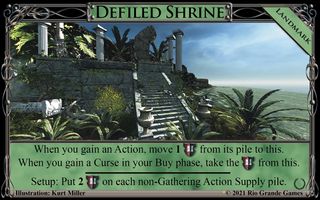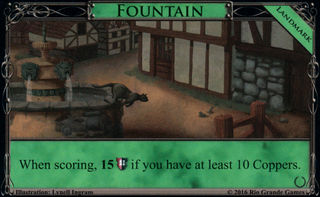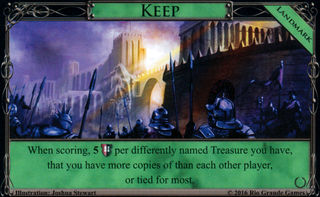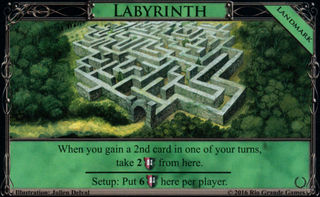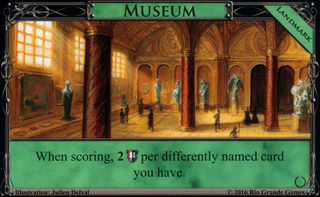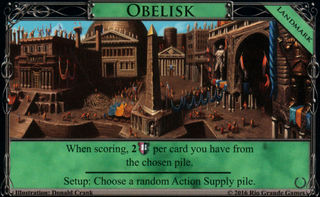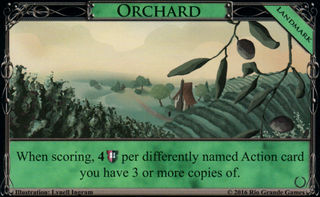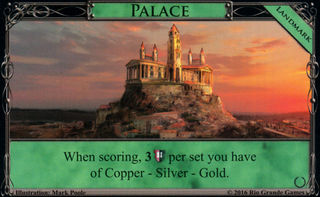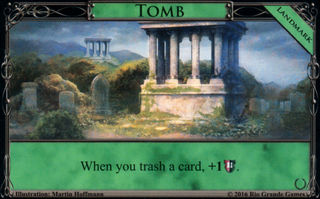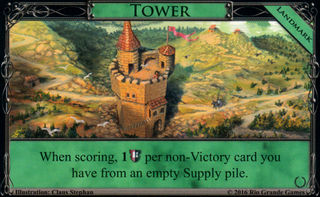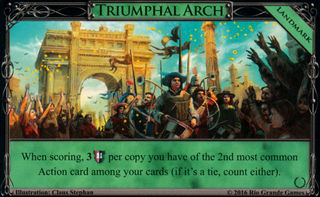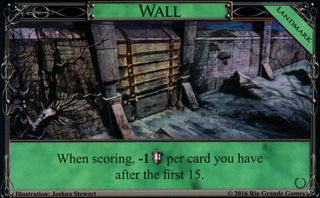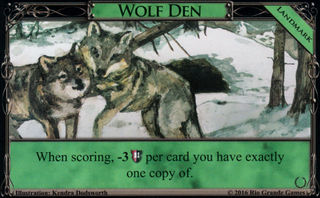Debt
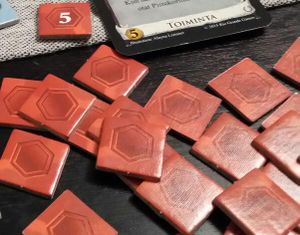
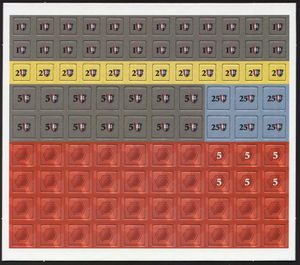
Debt (represented by the symbol ) is an alternate cost for some cards and Events in Empires and Rising Sun. It allows the buyer to take tokens instead of paying the full cost of the card. Players who have tokens may not buy cards, Events, or Projects. tokens can only be removed from a player by paying per token at any point after playing Treasures or spending Coffers tokens during the player's Buy phase, unless otherwise specified (e.g. Capital allows paying off tokens during the Clean-up phase). A player cannot play any more Treasures or spend any more Coin tokens once they have begun to pay off . may not be paid off when Black Market allows you to buy a card from the Black Market deck.
A cost in is orthogonal to a cost in a ; cards with in their cost do not cost less or more than cards with a cost. and are similarly not comparable.
Empires comes with 40 tokens, but the mechanic is not intended to be component-limited.
Contents |
[edit] List of Debt cards and Events
Engineer
Triumph
Annex, City Quarter, Donate, Overlord, Royal Blacksmith
Wedding
Fortune
- Capital does not incur debt when it is bought, but when it is cleaned up from play—in effect, allowing you to buy other things for instead of that turn.
- Tax adds to any Supply pile when bought, and has a Setup rule where all Supply piles start with . When Tax is in the game, when you buy a card, you take the on its pile.
- Mountain Pass is a Landmark where players bid for 8
 , taking the they bid if they win.
, taking the they bid if they win.
[edit] Official Rules
- Empires has Debt tokens. These are indicated with the symbol, usually with a number on it, e.g. .
- Having Debt tokens prevents a player from buying cards or Events; Debt tokens do nothing else (for example they have no effect at the end of the game).
- Buying a card or Event with in its cost gives the player that many Debt tokens.
- A player removes Debt tokens in the player's Buy phase by paying per Debt token to remove it; this is done after playing Treasures, but can be done both before and after buying cards.
- Removing Debt does not use up a Buy.
- For example, Natalie has and buys City Quarter, which costs . She takes , then immediately pays off with her . She still has . On her next turn, in her Buy phase, she has . She cannot buy any cards; all she can do is pay off , leaving her with . On her next turn, in her Buy phase, she has . She pays off the and has left to spend. She buys an Engineer, taking and immediately paying to get rid of it.
- amounts are something different from .
- An amount of and is only larger than another if both the and amounts are larger, or one is larger and one the same.
- Amounts that do not specify have , and amounts that do not specify have (including all previous Dominion card costs).
- Math involving amounts does not affect amounts.
- Examples:
- is not "up to ." is not more than and is not more than ; both have something the other lacks.
- Bridge (from Dominion: Intrigue) lowers the cost of cards by . This lowers Fortune from to , but has no effect on Engineer's cost of .
- Patrician checks to see if a card costs " or more." Fortune costs , so it costs " or more." Overlord costs ; that is not " or more."
- Knights (from Dominion: Dark Ages) trash cards costing from to . That never includes cards with in the cost.
- Trader (from Dominion: Hinterlands) trashes a card and gives a Silver per it cost. Trader trashing Fortune would give 8 Silvers for the , and no additional Silvers for the .
- Players cannot just take Debt tokens for no reason.
- Players cannot overpay with Debt (for Dominion: Guilds cards).
- Debt tokens are not counter-limited; players should use a replacement if they run out.
- Possession (from Dominion: Alchemy) now has errata that causes it to also give the Possessing player all Debt tokens the Possessed player would get.
[edit] Gallery
[edit] Cost debt
[edit] Other uses of debt
[edit] Trivia
[edit] In other languages
- Finnish: Velka
- German: Schulden
- Polish: Dług
[edit] Preview
[edit] Secret History
[edit] Why are there no Debt attacks?
[edit] Why aren't there more cards that refer to debt?
[edit] Applications to past cards
